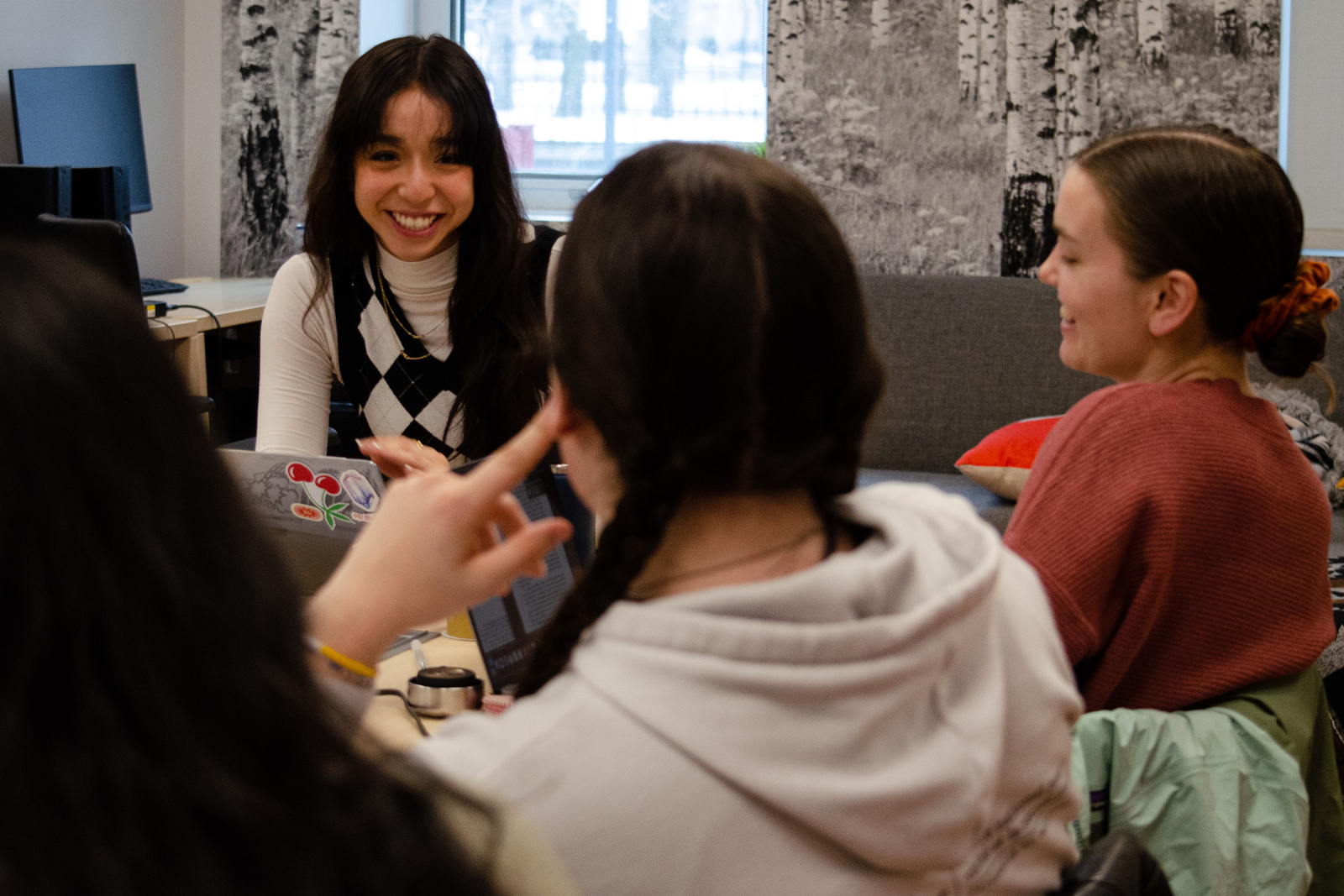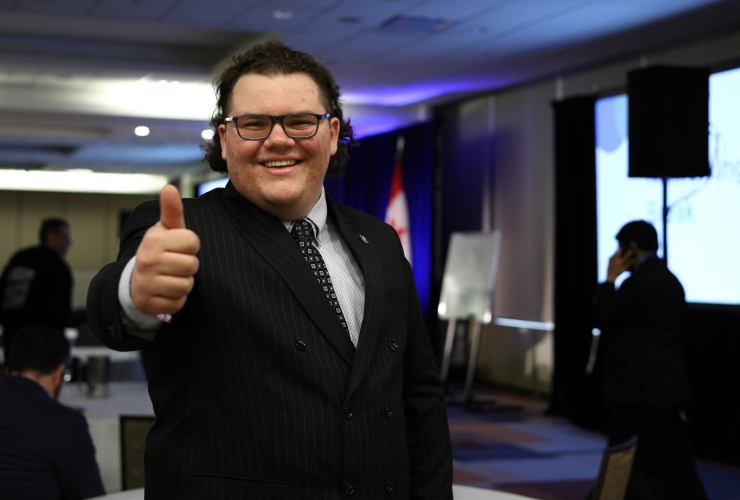By the time Quanah Traviss stepped out of the freezing drizzle, soup was already bubbling on the stove of the drop-in University of Ottawa Indigenous Resource Centre. It was a Thursday afternoon, and Traviss was one of about a dozen people to filter through the doors for lunch.
The Mashkawazìwogamig Indigenous Resource Centre offers Indigenous students at the University of Ottawa culturally relevant academic support and a space to study or socialize. Every Thursday, it provides students, staff and faculty with free soup and bannock at 11 a.m.
“It's like a community or family,” Traviss said. “A lot of the services in the city in general are focusing on people in crisis. There's not many places just for us to be ourselves.”
The resource centre opened in 2017. In 2020, it moved to a three-storey building on the north end of the University of Ottawa’s campus. Tanya Lalonde, an adviser for Indigenous affairs at the university and centre organizer, said last September, she started seeing students regularly come to the centre in person.

Its most popular event, according to Lalonde, is the weekly soup and bannock lunches. She estimates the centre sees about 40 people show up each week for lunch — including university guests, staff and faculty. Sometimes, Lalonde said she invites Elders, mentors and even employers to lunch with students.
“Food is very important,” Lalonde said. “Sharing a meal with people is very much how we socialize and how we can connect with people on a different level.”
Ganaaboute Gagné, a second-year student and a member of the Cree Nation of Chisasibi, arrived to study and hang out before the soup and bannock lunch started.
“It's our space, even if it's on our stolen land,” Gagné said. “It makes the university feel that much more like it's ours, even though it's designed not to be.”

University campuses are not always friendly for Indigenous students, Lalonde said, noting Indigenous students often face racism on and off campus. Students hear racist remarks from other students and professors. She said when the centre tried to put up a sign that said, “kwey,” a greeting in Algonquin, people kept stealing it.
Soup and bannock lunches, Lalonde said, are part of an effort to make students feel like they belong.
“The most important thing is that when students come here, they feel safe, they feel loved, they feel like they're home,” Lalonde said. “It's really important to provide a place for them where they can go and feel like they’re at home.”
From 9 a.m. until 5 p.m. each day, students can use the centre’s computers, study spaces and lounge. The centre hosts cultural nights and art workshops for Indigenous students and helps them access academic mentors and counsellors.

Brooke Morrow, a fourth-year student and member of the Chippewas of Rama First Nation, said when she first moved to Ottawa, she felt disconnected from her community. She said the centre helped her find a community of other Indigenous people.
“In an institution like this, you know this place wasn't built for you — you're not supposed to be here and you feel that everywhere you go on campus,” Morrow said. “Here, you're allowed to just be you. This is one of the only places I actually feel comfortable.”

For Traviss, a member of the university’s Indigenous Students’ Association, weekly soup and bannock lunches give him a place to “just feel normal.”
“The reason I love it here is because a lot of the time if you're in some kind of crisis, or you're struggling, everyone's like, ‘Oh my god, I feel so sorry for you,’” Traviss said. “A lot of the time, what you need is to just feel normal, and every Thursday, people just come here to just have lunch.”
Isaac Phan Nay / Canada’s National Observer / Local Journalism Initiative






Comments